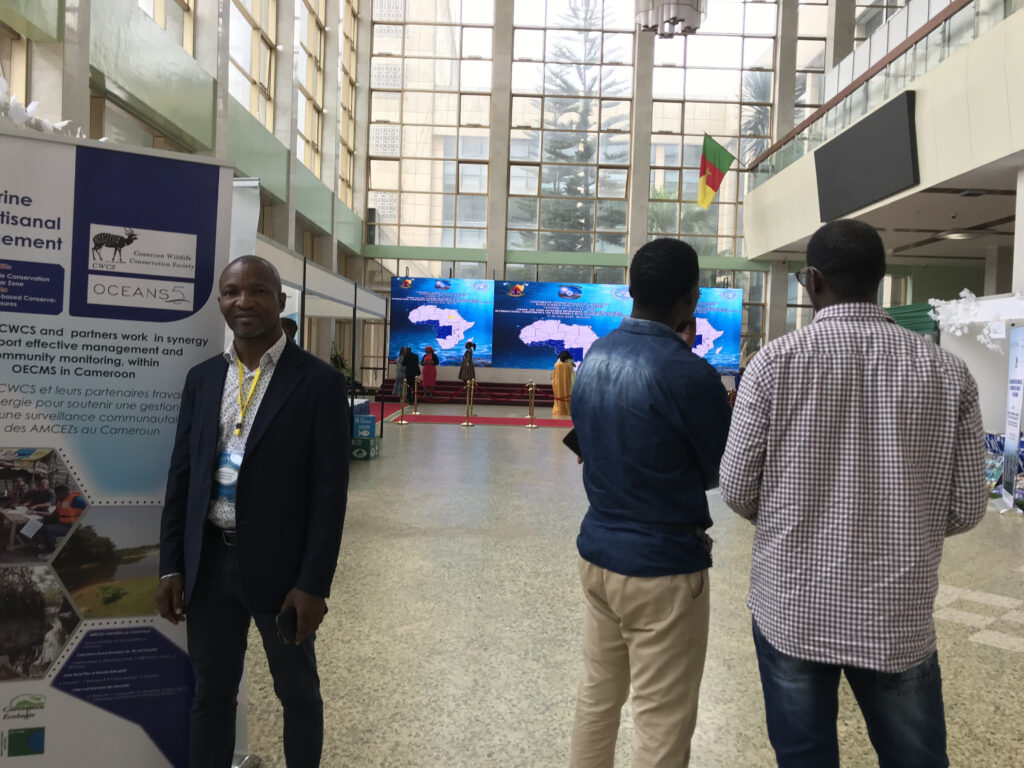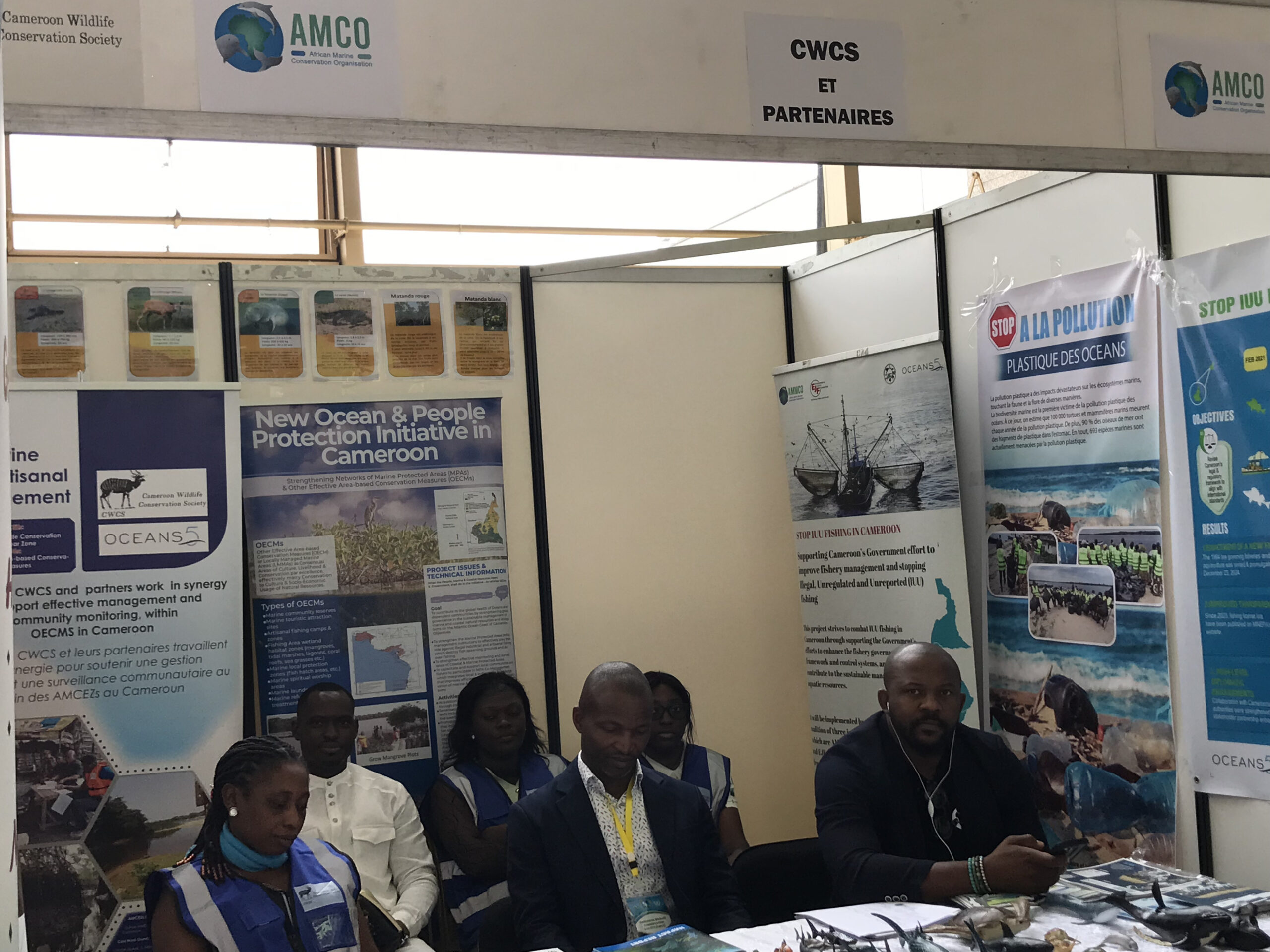The Gulf of Guinea is one of the world’s richest marine ecosystems, vital for livelihoods, food security, and economic development. Cameroon, one of the 19 members of the Gulf of Guinea, hosted the conference convened by the President of the 79th session of the United Nations General Assembly, Philemon Yang.
The conference provided an opportunity to strengthen regional cooperation and accelerate implementation of global frameworks, including the Kunming-Montreal Global Biodiversity Framework (GBF), the United Nations Convention on the Law of the Sea, the 2030 Agenda, and the Paris Agreement
Among the organizations invited, the Cameroon Wildlife Conservation Society (CWCS) showcased activities carried out for the sustainable management of marine resources with partners, the African Marine Conservation Organization (AMCO), and the Environmental Justice Foundation (EJF).
Prominent were the bivalves, which are threatened due to overfishing. Eugene Diyouke, interim coordinator of CWCS, emphasizes, “There is pressure on bivalves. On the ground, we are sensitizing communities not to destroy those little ones, to allow them to grow back so that they can have more resources.” It is against this backdrop that CWCS has trained a women’s association in Mouanko on snail farming as an alternative to bivalve fishing.
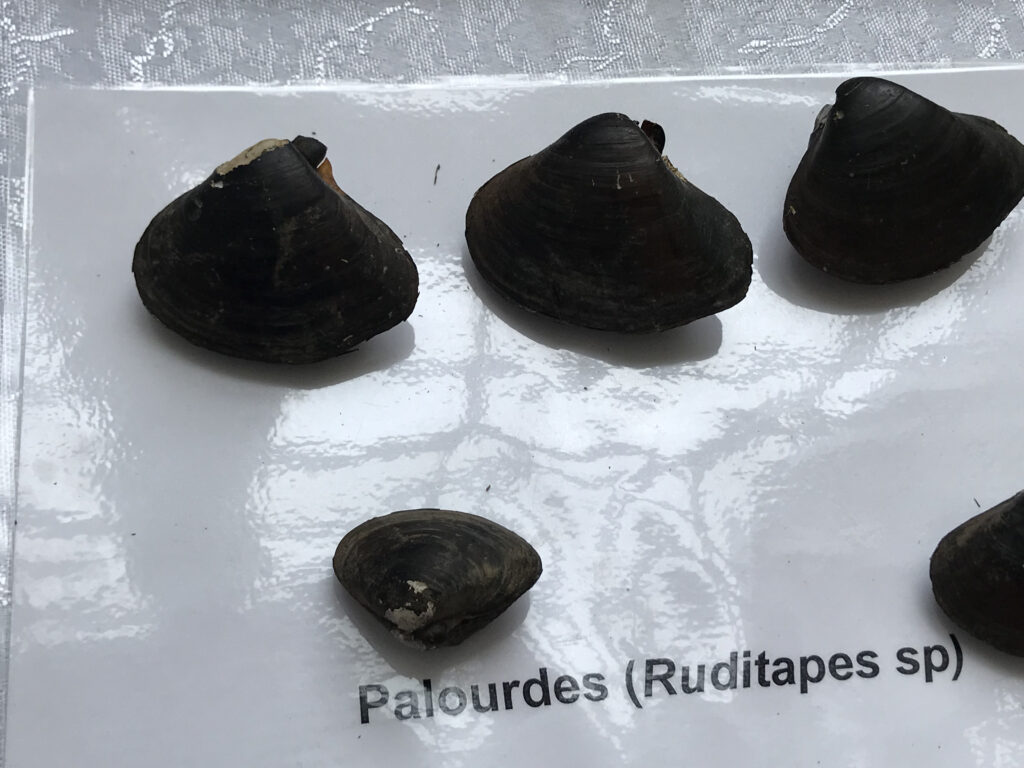
To enable the return of the disappearing marine species, CWCS is reforesting to restore the ecosystem with mangroves for the benefit of the local population. From 2008 to date, CWCS has restored about 200 hectares of mangroves, including about 130 hectares within the CAMERR project, with funding from Planet Urgence and in partnership with WTG and Cameroon Ecology.
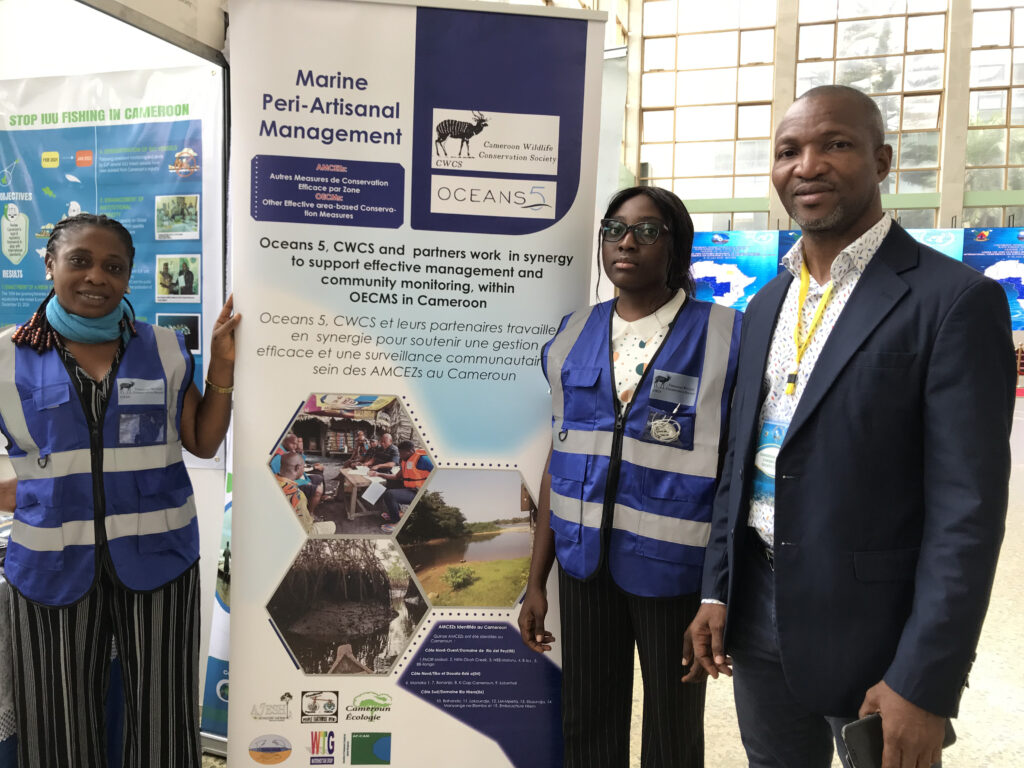
The organization is at the forefront of improving the management of marine protected areas through the production of documents and empowering local communities, as seen from magazines and flyers shared on their stand.
CWCS is open to partnerships because, all alone, there is limited visibility and impact. The NGO has therefore been working in partnership with other NGOs, Cameroon Ecology, AMCO, and EJF, with whom they shared a stand at the Blue Economy Conference of the Gulf of Guinea in Yaounde.
